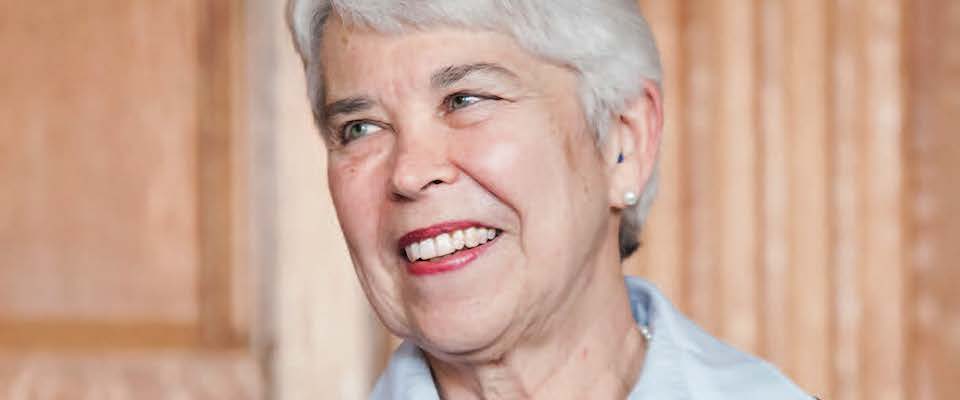On July 1, the University of California, Berkeley, will have a new chancellor—its twelfth. Carol Christ retires from the position at the end of June, passing the baton to Rich Lyons ’82, a former dean of Berkeley’s Haas School of Business and, more recently, the university’s first chief innovation and entrepreneurship officer. Rest assured, we’ll have a lot more about Lyons in future issues, but one thing is clear from the outset: He has a tough act to follow.
Chancellor Christ, who, for the last seven years, cut a very recognizable figure on campus in her trademark blue jackets, led Cal through student protests, power outages, smoke closures due to wildfires, and the Pac-12 implosion; also, budget deficits, lawsuits, a labor strike, and a global pandemic.
At the same time, she oversaw a wildly successful, multibillion-dollar capital campaign (see the university’s Fiat Lux section for more on that) and has been quietly working on adding thousands of beds to Berkeley’s student housing inventory. Even critics would have to agree that she’s been a steady hand on the tiller as Cal weathered multiple storms.
It’s worth remembering that Christ came out of retirement for the job after 11 years as president of Smith College, her only other professional home since she was first hired to teach in Cal’s English department in 1970. She had planned to spend at most five years as Berkeley’s chancellor but didn’t feel she could jump ship during the COVID crisis. Now, she says, she’s finally retiring for good.
But before she left to see the world with her grandkids, play her beloved viola, and who knows what else (consult this issue’s cover for ideas), California sat down with her for an “exit interview.” Read that conversation here.
Also in this issue, we profile Cal’s 2024 Alum of the Year, 60 Minutes correspondent Bill Whitaker. Whitaker attended the Berkeley Graduate School of Journalism in the late ’70s but didn’t get his degree until 2016 when he was at the peak of his profession, having already covered some of the biggest stories from around the globe, from Tiananmen Square to the O.J. Simpson trial to the U.S. war in Afghanistan. After all that, why did he go to the trouble for a piece of paper? For one thing, he just always wanted to say he graduated from Berkeley. For another, he had promised his mom. Berkeley J-school alum Francisco Martínezcuello, M.J. ’22, profiled Whitaker for us in “The Bedrock of Good Journalism.”
Journalists like Whitaker are in the truth-telling business, but they’re not the only ones who see themselves that way. Preachers and prophets do too. The late Harold Camping ’42 was one of those. Fired by zeal and unshakeable conviction, the engineer–cum–radio minister proclaimed over the airwaves and on billboards across the globe that the world would end on May 21, 2011. Kingdom Come never came, but that didn’t stop some followers from continuing to believe that Camping possessed some secret knowledge.
Contributor Hayden Royster examines Camping’s story to see what it might teach us about cults, conspiracy theories, and “doing your own research” in the age of online phenomena like QAnon. One surprising thing it tells us: Intelligence and rationality do not necessarily inoculate against believing
falsehoods. “In some cases, those higher on the scale of rational skill can be just as susceptible, if not more,” one Berkeley expert tells Royster. All of us are at times prone to what psychologists call “motivated reasoning.” Those of us with superior reasoning skills may be better at deluding ourselves. Read “Solving for Doomsday.”
Assuming doomsday doesn’t arrive sooner, we’ll be back to you in print in December. In the meantime, have a great summer and be on the lookout for new, online-only stories on our website. There, you can also sign up for our Telegraph newsletter to receive updates about new podcast episodes and events, including our next California Live! at BAMPFA on September 5. I’ll be talking with Professor Hany Farid about the rising tide of deepfakes and misinformation and what can be done to stem it. Hope to see you there.





















